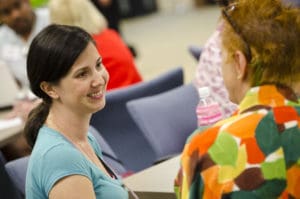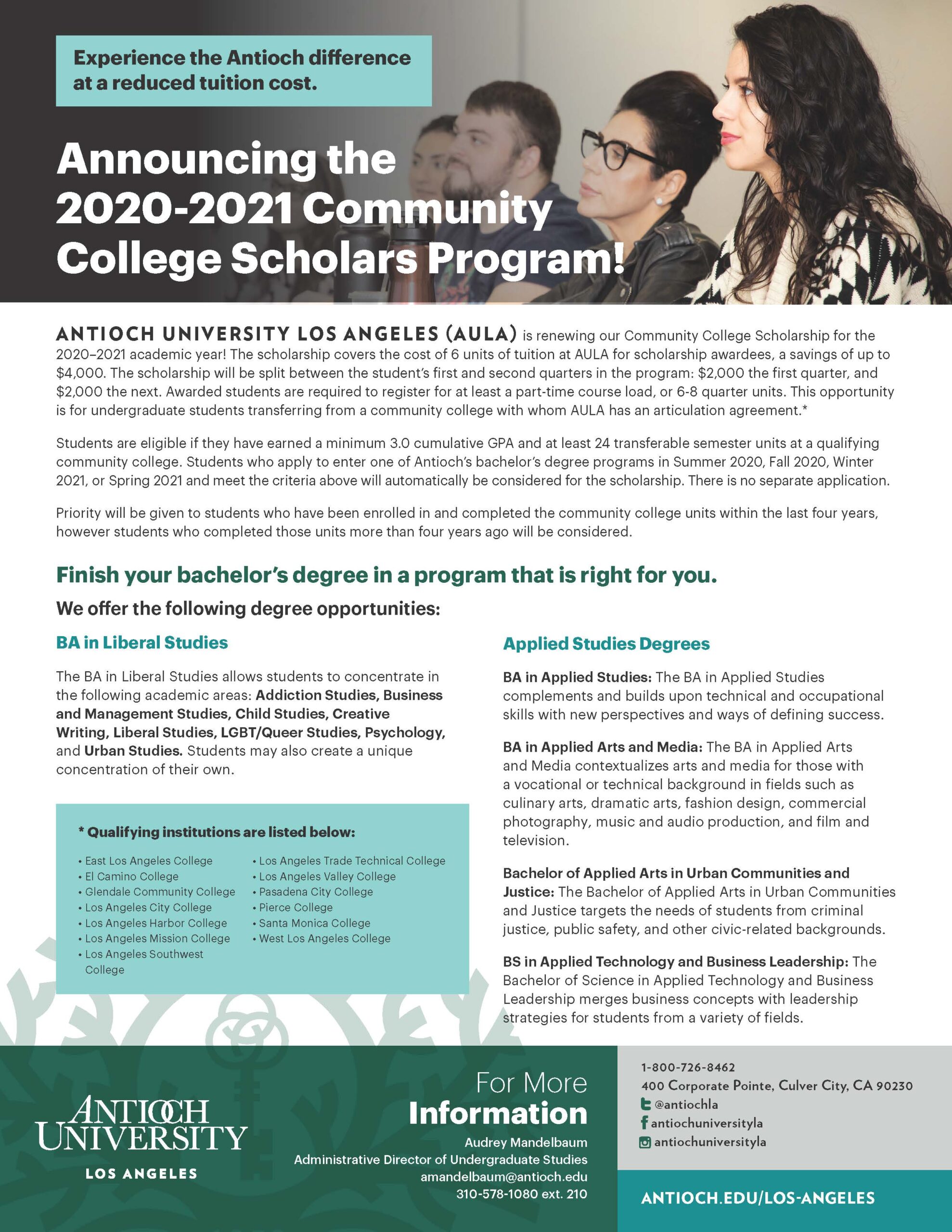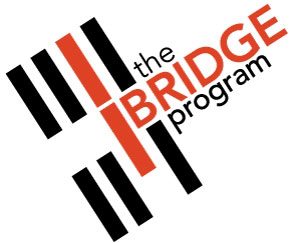Bachelor of Applied Arts
BAA in Urban Communities and Justice
Build a broader justice perspective, change your world.
Do you want to be more effective and employable as an agent of change for equity, inclusion, and justice? If you have training in community development, labor studies, law enforcement, criminal justice, public safety, or paralegal studies, Antioch’s Bachelor of Applied Arts in Urban Communities and Justice (BAAUCJ) is the ideal degree for you. Because we recognize the value of your prior training, the BAAUCJ accepts professional credits that other degree programs do not transfer in. Through coursework and hands-on learning, you will gain skills in community organizing, social change-making, environmental and economic sustainability, and leadership. You’ll explore how race, gender, citizenship, and age, as well as social and economic disadvantages, impact our communities. This degree is offered by AU Los Angeles.
Program Overview
 The Bachelor of Applied Arts in Urban Communities and Justice is part of a suite of Applied Studies degrees. Each provides an opportunity for students with occupational training to apply that learning toward the completion of an interdisciplinary undergraduate degree. Students reflect on past experiences and explore a variety of disciplines while gaining the skills to work as community professionals. BAAUCJ students take courses alongside other Applied Studies and Liberal Studies students in small, diverse, and highly interactive classes.
The Bachelor of Applied Arts in Urban Communities and Justice is part of a suite of Applied Studies degrees. Each provides an opportunity for students with occupational training to apply that learning toward the completion of an interdisciplinary undergraduate degree. Students reflect on past experiences and explore a variety of disciplines while gaining the skills to work as community professionals. BAAUCJ students take courses alongside other Applied Studies and Liberal Studies students in small, diverse, and highly interactive classes.
Degree Requirements
The length of time a student takes to complete the degree depends upon (1) the number of credits transferred into the program and (2) the number of credit hours taken each term. For example, a student who transfers in 90 quarter units (60 semester units) can complete the degree in 6 to 7 quarters of full-time enrollment, or 1-1/2 to 1-3/4 years. Students with scheduling challenges can also earn credit for independent study projects, or use a qualified job or volunteer commitment to earn internship credit. BAAUCJ degree requirements are listed below. Note that many of these requirements can be earned at Antioch and/or transferred in. Students can transfer in up to 135 quarter/90 semester units from a previous college or university. Of those, up to 105 quarter/70 semester units can be lower division, or 100- and 200-level courses.
 180 quarter units to graduate.
180 quarter units to graduate.- 27 or more transferred units in one cohesive professional area related to the major.
- A minimum of 30 semester or 45 quarter credits must be completed with Antioch University.
- 75 or more upper-division units (almost all of Antioch’s courses are upper division).
- Successful completion of our gateway course, Educational Foundations, during the first quarter of enrollment.
- 36 units of General Studies courses (6 units in each of the following domains): Communications, Science, Humanities, Quantitative, Social Science, Fine Art.
- 8 units of experiential, non-classroom learning such as internships, self-directed independent studies or prior learning.
- 10 units of hybrid professional seminars focused on topics such as leadership, business communications, group dynamics, cultural contexts, and technology in society.
- 9 units (about 3 courses) of core courses related to Urban Studies, Social Justice, Sustainability, and Cultural Studies. Examples of BAAUCJ core courses include:
- Urban Studies: The City as a Learning Lab
- Environmental & Social History of Los Angeles
- Psychology of Leadership
- Immigrant Experiences in the Global City
- Toolkit for Community Leaders
- Interpersonal Communications in the Workplace
- The Business of Social Change
- Prisons, Profiling, and Policing
For detailed curriculum and degree requirements, please visit the AULA catalog
Learning Outcomes
Students completing this degree will demonstrate the ability to:
- Identify ways in which oppression, privilege, discrimination, and social and economic disadvantage contribute to inequalities and injustices within communities and justice systems
- Engage in critical thinking and ethical decision making, evidencing an awareness of the challenges faced by community professionals while considering the individual, organizational and societal implications of policy and justice decisions
- Design innovative approaches and identify leadership strategies for dealing with a variety of social issues within a professional context
Scheduling
Antioch’s academic year is comprised of 4 quarters: fall (October), winter (January), spring (April), and summer (July). Quarters are 10 weeks long with 3-week breaks in between, during which instructors review and evaluate students’ work. Bachelor’s degree classes have anywhere from 8 to 18 students in each class, and are offered in 3 formats:
- 3- and 4-unit regular classes that meet face-to-face for one 2 hours and 50-minutes session per week for 10 weeks. This is the most common format.
- 3- and 4-unit online and hybrid classes that alternate face-to-face or video-conference meetings with online activity.
- 1- and 2-unit workshops that meet for just 1 or 2 full days during the quarter and occur on Fridays, Saturdays, or Sundays.
Additionally, students have a variety of options for earning credit through non-classroom learning activities: internships, prior learning, and independent study projects. View samples of current and past schedules
Prior Learning
Undergraduate students can earn up to forty-four university credits for learning gained outside of school, for example in a professional setting, or through personal experience. Demonstration of prior learning can take many forms but typically involves showing evidence of the student’s knowledge of the topic and situating that knowledge in an academic context. Unlike our formal classes, prior learning projects are not tied to the quarterly schedule. Earning academic credit for prior learning activities may accelerate a student’s time to degree completion and significantly reduces tuition costs. Students wanting to explore this option must take the Prior Learning workshop before earning this type of credit.
Internships
The internship office maintains partnerships with over 200 organizations in Los Angeles and supports students who wish to earn academic credit for hands-on, workplace experience. As interns, students expand their social networks, apply new skills, and actively contribute to community life. As part of the internship process, they also reflect upon the relationship between academic studies and real-world activities. The following are just a few examples of the many exciting internships our students pursue:
- Community Advocacy at the UCLA Labor Center
- Veterans Engagement and Mentorship at a College Veterans Resource Center
- Inner City Youth Mentoring at the Boys and Girls Club
- Workforce Development at the Downtown Women’s Center
- Archiving African American History at the Mayme A. Clayton Library & Museum
- Internship placements at students’ own jobs
Internships represent one way for students to satisfy the non-classroom learning degree requirement.
Fast Track
Antioch offers “Fast Track” options into two of our graduate programs. Once accepted, undergraduate students complete their remaining bachelor’s degree units by taking first-term graduate courses. Units earned in Fast Track apply toward both the student’s bachelor’s and master’s degrees, saving significant time and money in the process. Prior to applying for the graduate program, undergraduate students must consult with their Academic Advisors to determine their eligibility to become a Fast Track candidate and gain approval from the Undergraduate Studies Chair. Our Fast Track option is available for the following graduate programs: Master of Arts in Psychology (MAP) and Master of Fine Arts in Creative Writing (MFA).
Undergraduate New Student Orientation
New Student Orientation is scheduled every term. It’s a chance for students to visit the campus, meet faculty, register for classes, and get started on their educational journey. Upon acceptance into the program, students receive specific information for the New Student Orientation designed for them. To RSVP for an orientation, admitted students should email: [email protected] or call 310-578-1080 EXT. 3210.
Admissions / Cost / Aid
Admission
How to Apply
Complete and submit the Online Application.
- Complete and submit the Admissions Essay.
- Submit the Application Fee of $50. Note: Contact Admissions to request a fee waiver at [email protected].
- Request official transcripts from every accredited institution from which you have received units of academic credit. You must provide evidence that you have successfully completed 36 quarter units (24-semester units) or more of college-level learning.
- All materials are submitted to the Admissions Office. All application materials submitted become part of an applicant’s file and cannot be returned.
For students interested in receiving federal and state financial aid, high school graduation or an equivalency such as a GED is required. Students can also fulfill this requirement by completing six credit hours or equivalent course work toward a degree or certificate, or by receiving a passing score on an exam demonstrating an ability-to-benefit from a higher education. Students seeking governmental financial assistance may be asked to provide proof of high school completion or equivalency, as well as transcripts from previous college-level work. Official transcripts should be emailed to [email protected] or mailed to: Office of Admissions Antioch University Los Angeles 400 Corporate Pointe Culver City, CA 90230 All application materials submitted become part of an applicant’s file and cannot be returned. Admissions deadlines - Undergraduate Studies
| Quarter | Final Application | Start Dates |
|---|---|---|
| Spring | March 15 | March 31 |
| Summer | June 15 | July 1 |
| Fall | September 15 | September 30 |
| Winter | December 15 | January 2 |
Cost & Aid
| Per quarter unit | $535 |
| View the Cost of Attendance Components | |
Financial Aid
A majority of AULA students finance their education through some form of financial aid. You may not be sure which federal, state, public and private aid packages – such as loans, scholarships, and grants—are right for you. Our staff is here to help you, so you can focus on what’s most important: beginning your academic program at AULA. Returning to school is a big decision, but it doesn’t have to be a stressful one. LEARN MORE
Community College Scholars Program
 A special scholarship exists for undergraduate students transferring from a community college with whom AULA has an articulation agreement. If granted a Community College Scholarship, students receive 3 units worth of free tuition in the first term, and 3 units in the second term, a savings of $4,000. You are eligible for this scholarship if you have earned a minimum 3.0 cumulative GPA and at least 24 transferable semester units at a qualifying community college.
A special scholarship exists for undergraduate students transferring from a community college with whom AULA has an articulation agreement. If granted a Community College Scholarship, students receive 3 units worth of free tuition in the first term, and 3 units in the second term, a savings of $4,000. You are eligible for this scholarship if you have earned a minimum 3.0 cumulative GPA and at least 24 transferable semester units at a qualifying community college.
To promote the smooth transfer of credits from community colleges and other schools, we have articulation agreements with many local schools.
Recent News
-
Bridge Program Celebrates 25 Years of Promoting Educational Justice With Speeches and Community Tapestry
on February 10, 2025
-
Exploring Resilience and Healing in Comfort, Texas: Randa Jo Downs Publishes Poignant Memoir
on January 13, 2025
-
Stephanie Hunter Jones Publishes Inspiring Book on Heroism and Personal Growth
on December 18, 2024


